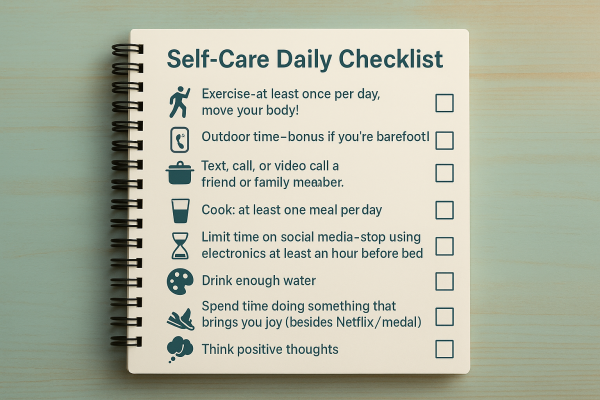

By Dr. Justin Marchegiani
Isolation, stress, and uncertainty can damage physical and mental health. With the world navigating social distancing measures, adopting a comprehensive self-care plan to keep cortisol in check, bolster immunity, and maintain emotional resilience is vital. Below are proven, practical steps—grounded in functional medicine—that you can integrate into your daily routine from home.
Regular exercise is one of the most effective ways to lower cortisol and boost mood. Whether it’s a brisk walk around the block, bodyweight circuits in your living room, or following an online yoga class, aim for at least 30 minutes of moderate daily activity. Consistent movement supports mitochondrial function, enhances circulation, and strengthens immunity [1].
With extra time at home, cooking from scratch can be therapeutic and health-promoting. Focus on:
Experiment with new recipes and batch-cook to save time later. Cooking is a creative outlet that ensures you control ingredients and avoid processed, inflammatory oils.
Also known as grounding, earthing involves direct skin contact with natural surfaces—grass, soil, or sand. Research suggests it may reduce inflammation, normalize cortisol rhythms, and improve sleep quality [2]. When weather permits, spend 10–20 minutes barefoot outdoors each day.
Adequate water intake is essential for detoxification, cellular health, and cognitive clarity. Aim for half your body weight in ounces of water daily, adjusting for activity level and climate.
Social creatures thrive on interaction. Schedule regular video calls with friends and family using Zoom, FaceTime, or WhatsApp. Even 10 minutes of face-to-face conversation can elevate oxytocin and reduce perceived stress.
Limit exposure to distressing news or social media to avoid chronic fear responses. Designate specific times for updates and switch off screens at least one hour before bed to support melatonin production.
Spend 10 minutes daily on positive visualization or gratitude journaling. Writing down three things you’re grateful for shifts neural pathways toward optimism and resilience [3].
Channel downtime into enriching activities—gardening, painting, instrument learning, or reading. Hobbies provide a sense of mastery and joy, counteracting feelings of stagnation.
Understanding your unique biochemistry can transform generic advice into precision protocols. Through functional medicine lab testing, insights into hormone levels, nutrient status, and inflammatory markers guide personalized interventions.
A functional medicine practitioner can craft a roadmap to optimize sleep, digestion, energy, and stress resilience by interpreting these labs in context. Remote consultations make this process seamless, no matter where you live.

What would you add to this list? What offline hobbies do you enjoy? Have you tried any new recipes recently? Let me know in the comments below!
Ready to elevate your health with personalized guidance? Reach out to Dr. J for a one-on-one functional medicine consultation. Let’s transform this challenging time into an opportunity for lasting well-being.
👉 Schedule your free consult: www.justinhealth.com/free-consult
====================
Recommended Products
====================
IN CASE YOU MISSED IT:
Post Viral Illness Hair Loss – Hair Loss After Getting Sick | Podcast #386